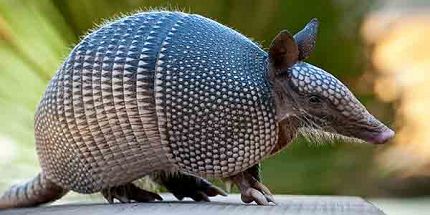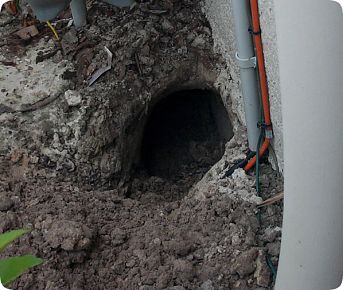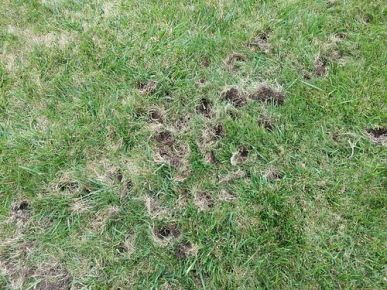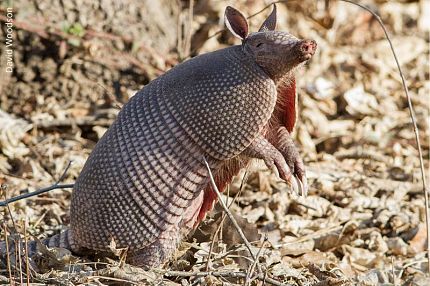
Identifying Armadillos
The nine-banded armadillo, named for its nine breaks in its leathery armor, is typically the size of a house cat. This indigenous mammal from southwestern North America has extended its range into Tennessee and is now widely prevalent. Armadillos have a diet that includes various insects and plants, and they are primarily nocturnal creatures due to their extremely limited eyesight. When alarmed, armadillos frequently perform a distinctive leap into the air before scurrying for shelter.

Problems and Damage
Most of the damage attributed to armadillos arises from their feeding habits, which result in the creation of holes that can be several inches deep. Armadillos are also notorious for wreaking havoc in gardens and uprooting shrubs while searching for food. Furthermore, armadillos tend not to inhabit human living spaces; instead, they construct burrows along foundation walls, driveways, or sidewalks. Over time, these burrows can lead to structural problems if left unaddressed.
It's worth noting that armadillos are carriers of leprosy, which can be transmitted to humans through contact with their saliva. However, not all armadillos carry this disease. Still, any scratches or bites should be promptly treated by a medical professional.

Prevention and Exclusions
To prevent armadillo intrusions into your yard, Freedom Trappers offers a monthly service program. Under this program, one of our Wildlife Specialists will visit your home once a month to apply an armadillo deterrent and inspect for any recent armadillo activity. If your technician detects signs of new activity, your monthly service includes a 7-day trapping period to remove the armadillo from your lawn.

Armadillo Removal
If you discover that an armadillo has encroached upon your yard, Freedom Trappers provides expert animal removal services. Our Wildlife Specialists are well-versed in armadillo behavior, allowing them to swiftly and humanely trap and remove the unwanted armadillo from your property.


 Back
Back